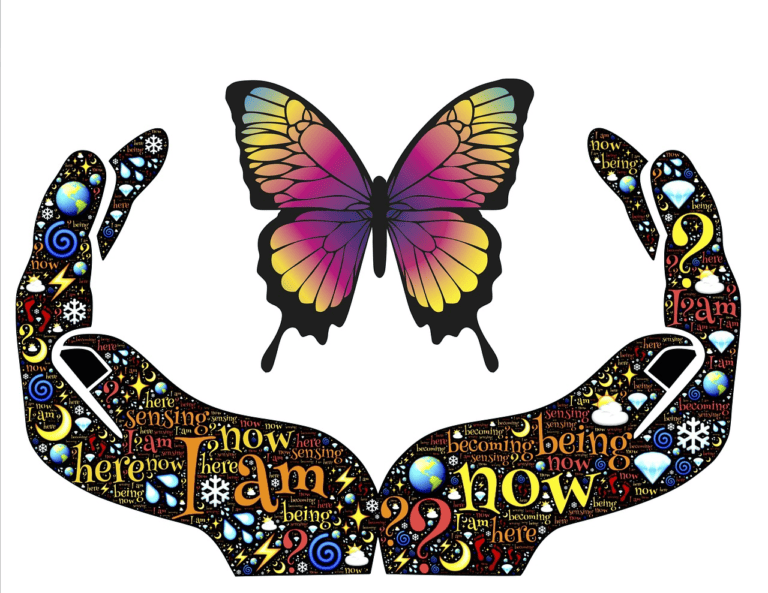Understanding The Benefits Of Mindful Communication
Did you know that 65% of conflicts in relationships stem from communication issues? Effective communication plays a crucial role in maintaining healthy relationships, whether it’s with your partner, family members, friends, or colleagues.
Mindful communication is an approach that can transform the way you interact and connect with others. By developing awareness and intentionality in your communication style, you can reap numerous benefits that enhance your relationships and overall well-being.
Mindful communication has been proven to enhance relationships and build trust. When you engage in mindful communication, you become more aware of your words, tone of voice, and body language. This heightened level of self-awareness allows you to communicate with authenticity and empathy, making others feel seen and heard.
As a result, trust deepens between individuals as they experience open dialogue free from judgment or manipulation. Studies have shown that practicing mindful communication leads to increased relationship satisfaction and improved conflict resolution skills.
So if you want to strengthen your connections with others and foster trust within your relationships, incorporating mindful communication into your daily interactions is essential.
Key Takeaways
- Mindful communication enhances relationships and builds trust.
- It increases self-awareness of words, tone of voice, and body language.
- Mindful communication leads to increased relationship satisfaction and improved conflict resolution skills.
- It strengthens connections and fosters deeper relationships.
Enhancing Relationships and Building Trust
Enhancing your relationships and building trust is a powerful outcome of practicing mindful communication. When you engage in mindful communication, you’re fully present and attentive to the person you’re communicating with.
This level of presence allows you to build rapport and foster deeper connections with others.
Mindful communication involves active listening, empathy, and non-judgmental understanding. By actively listening to others, you demonstrate that their thoughts and feelings are important to you. This creates a sense of validation for the other person, which can lead to increased trust and a stronger bond between both parties involved.
Furthermore, practicing empathy in your communication helps you understand the perspective of others more deeply. When you truly empathize with someone, they feel heard and understood, which strengthens the relationship. Empathy also enables you to respond in a more compassionate manner, resolving conflicts more effectively and avoiding misunderstandings.
In addition to building rapport and fostering connection, mindful communication also promotes trust within relationships. When people feel that they can trust each other, they’re more likely to open up and share their thoughts and emotions honestly. This vulnerability allows for greater intimacy within relationships.
Overall, enhancing your relationships and building trust through mindful communication is crucial for maintaining healthy connections with others. By actively listening, showing empathy, and promoting trust within your interactions, you can create deeper connections that strengthen bonds between individuals. Practicing mindfulness in your communication not only benefits your personal relationships but also enhances overall well-being by promoting understanding and positive interactions with those around you.
Developing Empathy and Compassion
Fostering empathy and compassion in our interactions allows us to truly walk in someone else’s shoes, stirring hearts and opening minds. By developing kindness and understanding, we can create a safe space for open communication where individuals feel heard and valued.
Empathy is the ability to understand and share the feelings of another person, while compassion involves taking action to alleviate their suffering. Both these qualities are essential for building strong relationships based on trust and mutual respect.
Promoting effective listening skills is an integral part of developing empathy and compassion. When we actively listen to others, we not only hear their words but also pay attention to their emotions, body language, and underlying needs. This deep level of attentiveness enables us to respond with genuine understanding instead of jumping to conclusions or making assumptions. By practicing active listening, we validate the other person’s experiences and demonstrate our willingness to engage in meaningful dialogue.
Furthermore, empathy and compassion have been shown to enhance cooperation among individuals by fostering a sense of connection and shared humanity. When people feel understood and supported, they are more likely to engage in collaborative problem-solving rather than resorting to conflict or competition. Developing these qualities also contributes positively towards personal well-being as it reduces stress levels while increasing feelings of happiness and fulfillment.
Developing empathy and compassion through mindful communication is crucial for enhancing relationships, promoting effective listening skills, and creating a more harmonious society overall. By embracing these qualities in our interactions with others, we can build stronger connections based on trust, understanding, and mutual support. Ultimately, fostering empathy allows us to bridge gaps between different perspectives while promoting kindness towards one another, creating a more harmonious and compassionate world.
Improving Problem-Solving Skills
Improving problem-solving skills is key to finding creative solutions and overcoming challenges in your daily life. By enhancing your ability to analyze problems and make informed decisions, you can navigate through various situations with ease. Mindful communication plays a crucial role in this process by fostering collaboration and encouraging open-mindedness.
When you improve your problem-solving skills, you become better equipped to assess different perspectives and gather relevant information before reaching a conclusion. This allows for more effective decision making as you consider all possible outcomes and weigh the pros and cons of each option.
Additionally, mindful communication helps you approach problems with empathy and understanding, enabling you to find solutions that benefit everyone involved.
Furthermore, improving problem-solving skills through mindful communication promotes collaboration among individuals. By actively listening to others’ ideas without judgment or interruption, you create an environment where diverse viewpoints can be shared openly. This fosters creativity and innovation as multiple minds contribute their unique insights towards solving a problem. Collaborative problem solving also builds trust within teams or relationships, enhancing overall efficiency and productivity.
By improving your problem-solving skills through mindful communication, you enhance your decision-making abilities while fostering collaboration. Analyzing problems from different angles enables you to make informed choices that lead to effective solutions. Moreover, collaborating with others encourages creativity and innovation by incorporating diverse perspectives into the problem-solving process. Therefore, investing time in developing these skills can significantly benefit both personal growth and professional success.
Increasing Self-Awareness and Emotional Intelligence
To increase your self-awareness and emotional intelligence, take the time to reflect on your thoughts and emotions, allowing yourself to better understand and navigate your own inner world. Mindful communication can greatly contribute to improving these aspects of personal growth. By being mindful of how you communicate with others, you become more aware of the impact your words and actions have on those around you. This increased self-awareness enables you to make conscious choices in your communication that are aligned with your values and intentions.
Improving communication effectiveness is a key benefit of increasing self-awareness and emotional intelligence. When you’re more aware of your own emotions and triggers, you can respond to others in a thoughtful and empathetic manner. This leads to clearer and more effective communication, as it allows for better understanding between individuals. By being present in the moment during conversations, actively listening, and observing non-verbal cues, you can gain valuable insights into both yourself and others.
Enhancing personal growth is another important outcome of developing self-awareness and emotional intelligence through mindful communication. As you become more attuned to your own feelings, needs, and values, you develop a stronger sense of self. This self-knowledge helps guide decision-making processes as well as improve relationships with others. Additionally, by practicing empathy towards others’ perspectives and emotions during communication, you foster a deeper understanding of human behavior which can support personal growth.
Incorporating mindful communication practices into your daily interactions can lead to an increase in self-awareness and emotional intelligence. By reflecting on your thoughts and emotions while communicating with others, you enhance both the effectiveness of your communication skills as well as promote personal growth. Being mindful allows for greater awareness of oneself as well as improved understanding of others’ experiences. Through this process, individuals can develop healthier relationships based on empathy, respect, clear expression of ideas, and active listening skills, leading to more harmonious and fulfilling connections with others.
Practical Strategies for Incorporating Mindful Communication in Daily Life
Start incorporating mindful communication into your daily interactions by practicing active listening, observing non-verbal cues, and being fully present in the moment.
Active listening is a fundamental aspect of mindful communication. It involves giving your full attention to the speaker, acknowledging their words without judgment, and responding thoughtfully. By actively listening, you can better understand the speaker’s perspective and foster a deeper connection with them.
Observing non-verbal cues is another valuable strategy for incorporating mindful communication into your daily life. Non-verbal cues include facial expressions, body language, and tone of voice. Pay attention to these signals as they often convey underlying emotions or intentions that may not be expressed verbally. By being attuned to these cues and responding accordingly, you can enhance your understanding of others and strengthen your relationships.
Being fully present in the moment is essential for practicing mindful speaking. When engaged in conversation, avoid distractions such as checking your phone or thinking about what to say next. Instead, focus on the present moment and give your undivided attention to the person you’re communicating with. This allows for a more authentic and meaningful exchange of ideas.
Incorporating mindful communication into your daily life requires active listening, observing non-verbal cues, and being fully present in the moment. These strategies promote understanding, empathy, and effective communication with others. By practicing these techniques regularly, you can cultivate stronger relationships and create a more harmonious environment in both personal and professional settings, ultimately leading to a happier and more fulfilling life overall.
Conclusion
In conclusion, you’ve now gained a deeper understanding of the benefits of mindful communication. By incorporating this practice into your daily life, you can enhance your relationships and build trust with others.
Through active listening and thoughtful responses, you’ll develop empathy and compassion, allowing for more meaningful connections.
Furthermore, by engaging in mindful communication, you’ll also improve your problem-solving skills. By staying present and fully attentive in conversations, you can better understand the needs and perspectives of others, leading to more effective solutions. This increased self-awareness and emotional intelligence not only benefits your interactions with others but also contributes to personal growth.
To incorporate mindful communication into your daily life, consider implementing practical strategies such as taking pauses before responding, practicing active listening techniques like reflection or summarization, and being aware of non-verbal cues. By making these conscious efforts to communicate mindfully, you’ll experience the positive impacts in both your personal and professional relationships.
Overall, adopting mindful communication is a valuable tool that allows for deeper connections with others while enhancing problem-solving abilities. By actively engaging in this practice, you can improve not only the quality of your relationships but also gain a greater understanding of yourself. So start incorporating these strategies today and witness the transformative power of mindful communication firsthand.






